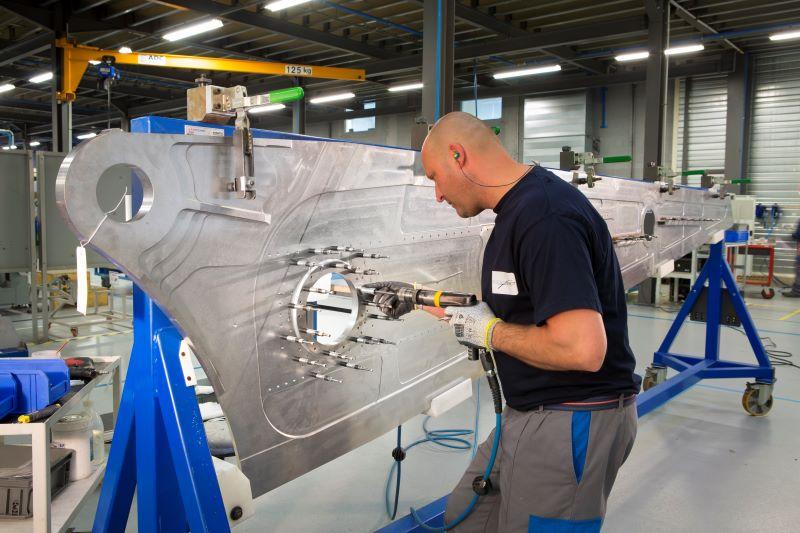Daily Memo: Investment Fund Gears Up For Next Round Of French Supply Chain Consolidation

Competitiveness used to be the overarching criterion when an airframer or engine maker was choosing a supplier.
With the COVID-19 crisis, resilience has emerged as another strong principle. That is where investment fund Tikehau Capital’s work may appear vital in future crises.
After the success of the Tikehau Aero Partenaires (originally known as ACE Aero Partenaires) fund, which has helped the consolidation—and sometimes the sheer survival—of the French supply chain, the French government announced the creation of a follow-on in December 2023.
The Tikehau Aero Partenaires 2 fund is aimed at supporting small- and medium-size companies in the aerospace sector. “We will work along the same lines as in the first fund,” says Franck Crepin, MD and head of aerospace and defense at Tikehau. Meaning: consolidation, support and transfer (when a company owner retires).
Tikehau Aero Partenaires 2 aims at amassing €400-500 million ($429-536 million) for its first closing in the first half of 2024. Eventually, the total is targeted at €800 million-1 billion in 12-24 months. In addition to fund manager Tikehau, early participants in Aero Partenaires 2 include French public investment bank BPI, the “big four” in the country’s aerospace industry (Airbus, Dassault, Safran, and Thales), and the Credit Agricole bank.
The first iteration of the Aero Partenaires project saved Figeac Aero, a critical supplier of metallic parts for Airbus and Safran. The pandemic severely hit Figeac Aero, which saw its annual revenues suddenly drop to €200 million from €440 million. Under a new funding strategy, Tikehau owns 25% of the company, while founder Jean-Claude Maillard owns 51%.
“Thanks to our recovery plan, profits are higher than in 2019, Figeac generates cash and revenues are almost at the 2019 level,” Crepin says. “We are on track.”
Another example of Tikehau’s long-term vision can be found with Crouzet, an expert in electrical protection. “The importance of that know-how may grow with future propulsion systems, which will use batteries or hydrogen,” Crepin says. Tikehau owns 51% of Crouzet, the annual revenues of which stand at €300 million.
“One can find a long-term business case for investing in aeronautics,” Crepin says. “The sector is growing; it offers good visibility and margins are attractive. The market’s structure is thus compatible with profitability.”
He is nevertheless concerned about persisting weaknesses in the supply chain. “The COVID-19 pandemic marked a break in productivity,” he says. “The crisis disorganized the supply chain. Then, demand recovery was swift. That stop-and-go sequence highlighted a loss in workforce and know-how.” Consequently, productivity was down about 15%, a drop that has yet to be recovered, causing production and profitability challenges, he adds.
Therefore, some suppliers are heavily in debt, as they simultaneously have to finance their losses and reimburse state-guaranteed loans. “That is a burden in the context of a production ramp-up,” Crepin says. “Inflation just compounded the problem.”
As a result, some companies that were marginally competitive before the pandemic found themselves no longer competitive. Yet, every link in the chain should have a fair compensation for their efforts, Crepin says, “Otherwise, you risk shortcuts that will degrade quality. Therefore, competitiveness should be considered in a bigger picture. Each OEM should ask themselves ‘will that supplier be able to support us as part of our global manufacturing system [GMS]? What is the position we want for the French supply chain in our GMS? Is our GMS local enough for us to continue to deliver when frontiers are closing?’ Otherwise, the system is vulnerable.”





